
The Darrell McClain show
Independent media that won't reinforce tribalism. We have one Planet; nobody's leaving so let’s reason together!! Darrell McClain is a Military veteran with an abnormal interest in politics, economics, religion, philosophy, science, and literature. He's the author of Faith and the Ballot: A Christian's Guide to Voting, Unity, and Witness in Divided Times. He was born and raised in Jacksonville FL, and went to Edward H white High School,l where he wrestled under Coach Jermy Smith and The Late Brian Gilbert. He was a team wrestling captain, District champion, and an NHSCA All-American in freestyle Wrestling. He received a wrestling scholarship from Waldorf University in Forest City, Iowa. After a short period, he decided he no longer wanted to cut weight, effectively ending his college wrestling journey. Darrell McClain is an Ordained Pastor under the Universal Life Church and is still in good standing as well as a Minister for the American Marrige Ministries . He's a Believer in The Doctrines of Grace, Also Known as Calvinism. He joined the United States Navy in 2008 and was A Master at Arms (military police officer) He was awarded several awards while on active duty, including an expeditionary combat medal, a Global War on Terror medal, a National Defense Medal, a Korean Defense Medal, and multiple Navy achievement medals. While In the Navy, he was also the assistant wrestling coach at Robert E Lee High School. He's a Black Belt in Brazilian Jiu-Jitsu under 6th-degree black belt Gustavo Machado, Darrell Trains At Gustavo Machado Norfolk under the 4th-degree black belt, and Former Marine Professor Mark Sausser. He went to school for psychology at American Military University and for criminal justice at ECPI University.
The Darrell McClain show
What Happens When We Stop Seeing Each Other as Neighbors?
The dividing lines in America have never been more dangerous than when we stop seeing each other as neighbors. In this powerful exploration of our fracturing society, we dive into Virginia's contentious governor race between Abigail Spanberger and Winsome Sears – a microcosm of America's broader political divisions where competence battles culture wars.
We then examine the alarming pattern of military leadership purges under both Trump administrations, where generals and admirals are being dismissed not for incompetence but for speaking truth to power. From Mattis and McMaster to the recent firings of General Charles Brown Jr. and others, these dismissals represent a fundamental shift where loyalty to a person trumps loyalty to the Constitution. When military expertise is sacrificed for political alignment, our national security suffers.
The episode confronts America's epidemic of gun violence, with over 100 school shootings already in 2025. After each tragedy, we witness the same cycle of outrage followed by inaction. Have Americans decided that the blood of their children is an acceptable price for maintaining their perceived safety against perceived enemies? Our fetishization of violence reflects not strength but profound fear.
Most disturbing is our growing indifference to human suffering, exemplified by the murder of Ukrainian refugee Arania Zarazuska on a Charlotte light rail. Bystanders watched without intervening as a young woman who survived war was killed in what should have been a safe haven. This wasn't just a system failure but a moral one – we've erased the category of "neighbor" from our social consciousness.
How do we rebuild a society where we see each other as fellow humans rather than existential threats? It starts with leaving room for others to grow and change, with committing to being our best selves even when it's easier to be our worst. The path forward requires us to reason together, recognizing that we share one planet and nobody is leaving.
Welcome to the Darrell McClain Show.
Speaker 1:I'm your host, darrell McClain Independent media that won't reinforce tribalism. We have one planet. Nobody is leaving. Let us reason together. You happen to be joining me for episode 475. Coming to you from a brand new location. I have relocated and I am coming to you from my new house. Let's get into the show.
Speaker 1:Let's start off today's episode with a show question. Hi, daryl, I have a show question. Can you give us an update on the Virginia governor race? Let us know what you think? Democrat or Republican? Why or why not? Who wins? All right, so one.
Speaker 1:I normally do not predict races, notoriously very difficult to do, but because the listener sent a question, who is a longtime Patreon? I actually think the member has been a Patreon for five years I'm going to go ahead and get into the Virginia's governor race. So spammy the the details that I'm gonna have to lay on here, because the deal is you have one, uh, abigail spanberger on one side, the former cia congresswoman, who is trying to sell herself as competent in a time where competence is treated like a sort of contraband. Then we have have Winston Sears, who is our current lieutenant governor, with a campaign that, basically, is boiled down to Trumpism, but a lot lighter, almost churchy. Both women would actually make history. But the question that they're going to have to answer in the Commonwealth is which history do Virginians want on their mantle? Spanberger is leading currently, and not just by a whisker. She's sitting comfortably at about seven points ahead in most polls. So that's not destiny, but it's enough of a cushion that she's probably sleeping better than Sears these days, and every analyst who I've listened to that's worth their salt has already moved Virginia into the likely democratic category. So that phrase in political science code is basically saying it would take a meteor strike for the underdog to pull the salt.
Speaker 1:Now Sears has leaned all the way into culture wars. She's not campaigning on electric bills or schools, et cetera. She's not campaigning about the unpaid teachers. She dug right into the kind of Trump flag area, picking fights about transgender policies. You know, because nothing screams. You know, pave your roads like yelling about what's happening in the bathrooms.
Speaker 1:In the Commonwealth it's the politics of grievance that is very popular to gin up the Republican base. But I don't know if the Commonwealth is going to go for that as far as their governance goes Now. Spanberger, for her part, is trying to play the role of the quote unquote normal. Van Berger, for her part, is trying to play the role of the quote unquote normal, that's her whole brand the CIA analyst. Steady hand, affordable living, health care, stability. It is a very boring campaign, but they are banking on the thought process that boring is exactly what the Virginia voters want at the moment. They are betting on the fact that Virginians are tired of a carnival ride. Virginia went to Harris in the presidential race by nearly six points and Spanberger is banking on that same coalition.
Speaker 1:Suburban moms, young people upset about the Trump administration and people who just want their leaders to stop shotting at them on cable news. Now I will remind you that Virginia has a weird habit of swinging against the sitting president's party. It's common, it's almost like clockwork. But this time the cycle could be broken because when the other choice is a hard line, trump is doubling down on division. Voters are leaning towards Spanberger as he grown up in the room energy.
Speaker 1:So what's likely is Spanberger wins. That's the smart money, but it's politics, and politics is a sport played by humans messy, unpredictable and often self-destructive. A scandal here, a stumble there or even a bad debate moment could shake up the entire race in the Commonwealth of Virginia. But as of right now. If you were a betting soul, I tell you to lay your chips on Spanberger. And I will say this both are a culture, war, chaos. Virginia might do the same thing it always does, which is pick against the party that is in power, which is currently the Republican Party, and that is just what I think may happen in the race If I was a betting man at this moment.
Speaker 3:I would say Virginia is going to do what it normally does and go against the party that is in power. In addition to these National Guard deployments and threats, we're seeing major ICE and CBP deployments to especially cities and states run by Democrats. I know that the Department of Defense gave immigration agencies the approval to use a New Jersey military base to detain between, I think, 1,000 to 3,000 migrants. I think it would make it the largest immigrant detention hub on the East Coast. And then Newark Mayor Ross Baraka was arrested outside an immigration detention facility back in May, I believe. What was your reaction to this growing ICE presence in your state and DOD signing off on the use of military assets for immigration detention operations like that?
Speaker 4:So, as I mentioned, I'm a Navy veteran. I now sit on the House Armed Services Committee and I can tell you I've been incredibly opposed to this for so many reasons, not the least of which is it's moving resources away from our troops to support a mission that we should not have on our bases and the military should not be involved in this. I heard from one military member who said I'm about to deploy and I said to him oh, I'm sorry, because I know he has some young kids, he goes. I'm kind of relieved because I don't want to run concentration camps here at home, Right, I mean, that's horrible. Concentration camps here at home? Right, I mean, that's horrible.
Speaker 4:And so we're seeing this push to really undermine a lot of the rules here. And it's really chilling to me because, as I mentioned with my background, I watched in Trump's first administration as he tried to again and again and again co-opt a private militia for himself and he tried, initially during the Black Lives Matter protest, to utilize the US military, Remember, and he was always calling generals my generals, as if they were solely serving him, not the Constitution, and constantly trying to undermine the military. And I thought it was odd at the time, because the worst time for his numbers was when he was attacking John McCain. And I thought it was odd at the time because the worst time for his numbers was when he was attacking John McCain. I thought that was an odd thing to do, but in hindsight I think he was again and again trying to undermine the prestige of the military because it was the one organization that people trusted and that stood against him. And so, if you recall, the troops got all the way to Fort Belvoir but they stayed out under pressure from General Milley and I think Mark Esper was sected at the time and really pushing back.
Speaker 4:And so then he had troops all over the mall guarding the monuments and we didn't know. They were in camis but they had no insignia, they had masks on. It was during COVID and they wouldn't say where they came from. They wouldn't answer any questions and we think maybe DOC, Department of Corrections, but it was a little bit unclear. So again and again trying to co-opt these militias and then finally, January 6th, his private militia. So he still had to leave office, I would say unwillingly and then came back into office and one of the very first things he does is start to fire admirals and generals. He fired CQ Brown, who was the chairman of the Joint Chiefs. He fired Lisa Frank-Keddie, who was the chief of naval operations. When I said to Pete Hickseth I think he did it because he was black and she was a woman, he didn't deny it. I think it's pretty clear, Very specifically.
Speaker 3:Very specifically, CQ Brown filmed one video about being a black man in America after Black Lives Matter and I think that led him to being fired.
Speaker 4:He fired the head of special ops and part of the understanding was that that's because he suggested that women, if they could compete, should be able to be Navy SEALs. We've had multiple three-star admirals fired who are women, and then others across the board who express anything. I've heard from DHS officials that there is a loyalty test. I've heard some people quitting because they aren't going to do a loyalty to Trump instead of the Constitution. So again and again you see him trying to both weaken the US military and then strengthen ICE. And now we're putting more money into immigration enforcement than we are to the United States Marine Corps. And you're seeing the commercials. A lot of people around my way out in New Jersey see them on the football games. There's a lot of ICE recruiting commercials and they're very aggressive, and so you're seeing him really try to have this. I think it's really dangerous, which is why governors need to really stand in the breach and demand accountability and understand who these people are on the streets, and that's why in Congress I'm on legislation to make sure that you have to identify yourself, that you can't go around masked, with no insignia, unmarked cars and then on the streets. I think the courts are where some of the battle is, but you also have to be very careful with your own state police force.
Speaker 4:So I was talking to someone who said he's a former police officer. He said he was just chatting with one of his friends who's currently a police officer, who spoke to an ICE agent. The guy came up to him and demanded something. He goes, show me a badge. I don't know who you are. And he goes. I don't have to show you who I am. I'm with ICE. And he said, yeah, you do. And he goes. Well, I'm taking you to jail. And the guy goes well, I'm taking you to jail and we'll sort it out there. But I mean, this is the kind of lawlessness that's going on and it really, and a lot of our police officers are coming forward saying this is making our streets less safe. Yeah, and this is not our mission.
Speaker 5:Let's get your reaction to another development on Friday the firing of the Defense Intelligence Agency Chief Lieutenant General Jeffrey Cruz, after he oversaw the initial assessment on the Iran nuclear strike. What do you make of the administration firing the head of the Defense Intelligence Agency, apparently because they didn't like an intelligence assessment.
Speaker 6:I don't know the details of this particular case, jonathan. As you mentioned, it just took place at the end of this week. There's a maxim in the intelligence community always about speaking truth to power. I think that that's what this administration any administration should always ask of its intelligence analysts and indeed its senior intelligence leaders.
Speaker 5:And very quickly, we'd also just shown on the screen. There are 16 general officers that have been either fired or reassigned since Trump became president. Obviously, there's seven of them, which we talked about earlier, are women. What do you make of this? It seems like it's been called a purge in the ranks. Is this a concern?
Speaker 6:I think it has to be a concern. Obviously, it's unprecedented. There's never been anything like this. There have been cases in the past where individuals who've gotten crosswise with the president or with the secretary of defense certainly usually on a policy issue in which they should not have spoken out and indeed were replaced. But the numbers here obviously are much more significant than that.
Speaker 5:All right, General David Petraeus. Thank you very much. Always good to talk to you.
Speaker 1:So the question lingers about why the Trump administration fired so many military leaders. And before we get into what is going on now, I think we can look at what happened in the past. As a bit of a way to look at this, we can talk about the revolving door at the Pentagon during Trump's administration the first time. Now we have to be honest. The firing of generals is not new. From President Truman all the way to Barack Obama, they had their beefs with military brass. President Truman famously sacked General Douglas MacArthur in the middle of the Korean War, and President Obama relieved Stanley McChrystal in Afghanistan. But with President Trump it wasn't just one or two high-profile clashes. It actually became a pattern and near constant purge and a reshuffle of commanders, secretaries and defense officials. At its core, it comes down to a clash of cultures. The military runs on hierarchy, the chain of command and loyalty to the Constitution. Trump, on the other hand, wanted loyalty to himself In his orbit. Questioning his judgment was ground for exile. This is how you get a strange spectacle of generals people who've spent 40 years in uniforms, who have stared down insurgents in Fallujah and the Taliban fighters in a mood being dismissed like apprentices on a reality TV set. So let's take a roll call. James Mattis, the Marine, once nicknamed Mad Dog, mattis served as Trump's first Secretary of Defense. Now, trump loved Mattis until he dared to oppose the sudden withdrawal of US forces in Syria and then criticized Trump's handling of NATO Resonation letter out the door.
Speaker 1:Hr McMaster, the National Security Advisor, another decorated general. He clashed with Trump over Russia and the Iran deal Gone. John Kelly, white House Chief of Staff, another Marine General, tried to impose discipline on a chaotic White House. Trump soured on him Out. And this just wasn't cabinet-level names. Trump actually churned through defense secretaries and acting secretaries like he was on some sort of a casting call. Mark Esper, who replaced Mattis, fell out with the favor when he opposed using active duty troops against protesters during the George Floyd demonstrations. Trump branded him Yesper for being too compliant, then weak. When he finally said no, out, he went.
Speaker 1:Why so many clashes? Well, there are three main reasons I would like to get into. The first one is policy disagreements. Trump wanted dramatic gestures pulling out of Syria overnight, cozying up to Putin or demanding South Korea pay billions more for US troop presence. Military leaders trained to think in terms of logistics, alliances and consequences. Balk at the impulsive moves.
Speaker 1:Second, the loyalty test. For Trump, loyalty was the coin of the realm. For Trump, loyalty was the coin of the realm. The Constitution, treaties, traditions were all negotiable. What wasn't negotiable was personal allegiance. Leaders who refused to bend the knee eventually got the boot. Third, the image war.
Speaker 1:Trump marketed himself as a friend of the troops, but military leaders cared less about branding and more about planning. The friction between optics and operation was constant. When generals constrained Trump in public, when they contracted him in public, it wasn't just a disagreement. Him in public, it wasn't just a disagreement, it was a humiliation in front of his base, and Trump doesn't forgive humiliation. Now some listeners might say presidents are elected and generals are not elected. Isn't it the president's right to hire and fire who he wants? Isn't it the president's right to hire and fire who he wants? Absolutely Civilian control of the military has been a bedrock of the United States for a very long time.
Speaker 1:But when you burn through leaders at this sort of pace, you create instability. The Pentagon spent much of Trump's four years in a fog of acting secretaries and interim commanders. That made long-term planning nearly impossible. Allies abroad watched with confusion and enemies of America watched with delight. Even worse, it frayed the bond between the military and civilian leadership. Many senior officials felt that they had to choose between personal and professional integrity and their jobs. Some resigned quietly. Others spoke out after leaving. General Mattis, in a blistering statement after the Lafayette Square incident, accused President Trump of trying to divide the nation and misuse the military as a domestic police force.
Speaker 1:When retired four-star generals, people trained to keep politics at arm's length, start publishing op-eds against the commander-in-chief, you know the trust has been broken. The larger lesson is Trump wasn't the first president to clash with his generals and he won't be the last. But he turned it into a personal loyalty contest rather than a professional debate about national security. And that's where the danger somewhat lies, because the military is supposed to serve the Constitution, not personality in the Oval Office. When presidents demand absolute loyalty from generals, it starts sliding toward the kind of politics where we see In a more unstable third party regimes third world regimes, I meant to say but our armies become, you know, private armies. So this is why so many military leaders couldn't last under Trump. They actually weren't willing to become props and personal shows. They had spent their lives saluting the flag and not individual men. And when the test came, many chose to keep their honor and walk away.
Speaker 1:In the end, trump administration's firing spree of military leaders, especially in the first term, like I said, give us an example of what the second term is going to be, and it's less about the failure of generals and more about the insecurity of the president, who mistook public service for personal devotion. The tragedy in that is the Americans' national security apparatus. The field that protects us all will turn into another episode of who's in, who's out in the White House drama and history. If you've already been paying attention to the people who are writing, it will not remember this kindly. Now, in the second administration, the people who are starting to have been let go somewhat. It sounds like just a short list. It would be.
Speaker 1:You had General Charles Brown Jr, the chairman of Joint Chiefs of Staff, who was fired outright in February of 2025, along with five other generals and admirals in what Reuters calls an unprecedented shakeup of military leadership, replaced by retired General Dan Raisin Kane, breaking the tradition by pulling a retired officer back in service. Lieutenant General Charles L Plummer, the USAF so the United States Air Force Judge Advocate General. And Lieutenant General Joseph B Berger, the Army Judge Advocate General. Both were dismissed abruptly in February 2025 by Defense Secretary Pete Hexett. Terminations caught many off guard LtS strikes in Iran nuclear sites. General David Alvin, the chief of staff of the Air Force, announced an early retirement around November 2025, midway through what should have been his four-year term, mildly seen as a part of a sweeping leadership purge. National Security Advisor Mike Waltz, fired in May 2025 after a signal chat leak scandal, resigned, per the administration's statement, to the UN Ambassador nominee, while Marco Rubio took over NSA duties, repeating the first term pattern.
Speaker 1:But because Trump has more skills, more practice, so he's doing it a lot faster. Trump ran a purge on what the base called woke generals and now once again high-level career officials are being removed because they didn't meet loyalty standards or distribute publicly or even quietly, with his views, politics and, I guess, the presence that it now has on the intelligence community and including the military council, so crushing firings after its report contracted. The administration's public narrative is especially alarming. Intelligence integrity sinks when reports are weeded out for what people suspect is not true but is just wheeled out for political convenience. Legal and institutional concerns as well pop up here. The judge advocates like Plummer and Berger had stationary terms, you know, and it was a statute, basically and removing them mid-course raised serious questions about the legality of them being replaced anyway, but possibly even a violation of the Uniform Code of Military Justice protocols.
Speaker 1:The overall impact of military instability and experience is the problem, because they're not just names of people who have been fired. They end up being decades of institutional memory, strategic thinking and ethics. Outright Pulling them out abruptly damages the command structure and undermines alliances and, trust me, allies definitely notice and the adversaries definitely notice as well and, I would argue, benefit from the instability. Replacing Brown with a retired officer and bypassing the unusual highest ranked candidate also shows signals of a shift toward loyalty over credentials. Now what it means for America? It is obviously arguable civilian control versus personal loyalty. Civilian control is extensional.
Speaker 1:But when civilians demand unquestioning loyalty from the military instead of counsel and professionalism, it flips into control over the military in general, which is dangerous. It creates erosion of the institutional norms. Fire at midterm silence, resign the institutional norms. Fire, midterm silence, resign. These gestures chip away at the norm. It's meant to institute the military from political swings, whereas leadership changes happen for political optics. Strategic planning suffers, especially for ongoing global threats like Iran, china, the Ukrainian-Russia conflict, etc. Etc. This isn't business as usual.
Speaker 1:Trump's second term is doubling down on the pattern loyalty tests, loyalty purges and institutional, you know, piety, basically, piety. Basically the people fired so far brown, plumber, berger, cruz, alvin watts they weren't removed because they were even seen to have failed at anything. They were removed because they didn't align tightly enough with political needs of the moment. What happens when the needs for political alignment trumps military expertise? That's not a recipe for national strength, it's a recipe for decline and national weakness.
Speaker 1:So sadly, while we were discussing what happened the high-profile assassination of the conservative political activist and commentator Charlie Kirk there was another school shooting, this time in a Colorado high school, and the shooter shot two students before taking his own life. The shooter was a 16-year-old student by the name of Desmond Holly. Like I said, he shot and injured two students before taking his own life at Evergreen High School on Wednesday. Quote we're looking at a motive and we don't have one yet, said Jefferson County Sheriff's Office spokesperson, jackie Kelly. Sometimes we never actually found out why. Another quote from Kelly is he was radicalized by some extremism network and the details of that will be down the road, and we wanted to give you that much about, maybe a mindset for him. The student and teachers at the school were amazing. They did their job, they did it well and lives were saved because of the actions they took. During the lockdown drills, said Kelly, lots of kids ran, but the ones who didn't were in a lockdown and were being cared for.
Speaker 3:Someday we can get it through the politicians' thick skulls how terrible it is to tell a 12-year-old parents that their child has been shot. I hope it would get through their skulls that message, as well as some of these bullets do.
Speaker 2:An immediate ban on semi-automatic rifles and high-capacity magazines, and I will get the names of any lawmakers who stand in the way of that happening, will get the names of any lawmakers who stand in the way of that happening, and I will invite you to come to my living room and insist that you hold Vivian's hand while we do her dressing changes each night and she cries the entire time and you can look her in the eye while you cleanse her bullet wounds and you can tell her to her face why you are opposed to keeping her safe, why a semi-automatic rifle is more valuable than her life. I will end by imploring you to pray for Sophia's recovery. Pray as hard as you can and please, please, keep Fletcher and Harper's memory alive. Honor them and remember them for the amazing kids that they are, not just now, while the story is fresh in the headlines, but in the coming weeks and years and decades ahead. Always remember them. Now more than ever, we need a future filled with true, one is too many.
Speaker 7:One death, by the way, true, it is too many. Violence should never be accepted, it should never be tolerated. But that's for their issue. In the wake of Sandy Hook and Uvalde and Parkland and El Paso and Lewiston and Aurora and Buffalo and Boulder and Binghamton and Highland Park and Monterey Park and San Bernardino and San Jose and San Francisco, and the Pulse nightclub and the Colorado Springs nightclub and the Little Rock nightclub and the Borderline Bar in Thousand Oaks and the Ned Peppers Bar in Dayton and the Waffle House in Nashville and Virginia Tech and UVA and MSU and UCSB and FSU and NIU and SMC and the Sutherland Springs Church and the Mother Emanuel Church in Charleston and the Living Church of God and the Tree of Life Synagogue and the Allen Mall and the Westroads Mall and Fort Hood and Lockheed Martin. And what are we doing? What are we doing? By the way, that is a wildly incomplete list. We kept it to the last 25 years and it's still not everything. One is too.
Speaker 1:Now for some context here. There have been at least 100 school shootings already in 2025. In 2025. So when I was growing up and I was in school, it was the Columbine shooting and that was a national tragedy and after that you think it's never going to happen again. But that wasn't the case. It seemed like once that one shooting happened, pandora's box had been opened I'll just put it that way and it seems like since then it has just never ended. It seems like it has just Skyrocketed just just nonstop. School shooting after school shooting, after school shooting after school shooting.
Speaker 1:I must admit, I gave up hope on the situation, to be honest, when I watched as a shooter went into a elementary school and massacred kids and the response was the typical it's the wrong time to talk about gun situation and in my view, of that point was America, because of what I believe is this hatred of other citizens inside of America and seeing them as the constant enemy racist, fascist, bigoted, homophobes, communists, socialists, etc. Etc. That Americans have seemed to have decided that it is worth the blood of their children as long as they can maintain their perceived safety against their perceived enemies, whether they be on the left or on the right obsession of American people the wider American populace, I should say is not a sign of strength. It is a sign of fear, because you perceive that somebody, somewhere, is going to come and get you. And the fact of the matter is, because America has a fetishization with violence, that that will always be true. Enough to keep arming yourself to the teeth, there will always be somebody being killed. To keep arming yourself to the teeth, there will always be somebody being killed. There will always be a slaughter. Whether with a knife or with a gun, there will always be violence. And, because of the way the national media works and the way the local media works as well, there will always be something to point to to justify your fear. I'm not sure it will ever happen in America because of the fact that Americans, for a large portion, when you really get down to the core of people's thoughts, they do not, and have not for a long time seen Americans as opposing ideological foes. They don't see the opposition as we're just going to have a disagreement about taxes. They see it as these people are evil. And you don't negotiate with evil, you try to put evil down, and as long as that is the pathos of the American populace. I don't know how we're going to get out of this.
Speaker 1:For all intents and purposes, people who know me personally know for the most part I'm a genial funny person. People who knew me longer know I can be just as fiery and flippant and angry as the next person. I've somewhat made it my business that when I sit and reflect and talk to my audience, I refuse to be the worst version of myself, even if it's my knee-jerk reaction, even if I know which I do know for a fact. If I were to say things that I could say in the most wittiest and meanest way possible, if I could sharpen it so much my words and my rhetoric, so much for clicks I'd be rich. I'd be rich. But I don't want to have to sit around when I'm older and look at the country I'm sitting in and know that my rhetoric helped cause the degradation of a society. Degradation of a society.
Speaker 1:I want to be somebody who, even though I have very committed and what I believe are well-researched and reasoned positions, I want to be the person that always leaves room for other people to catch up with me. For other people to catch up with me, will I debate people vigorously? Absolutely. But I always want to give people room to figure it out, because you don't always have all the answers and if you really look at yourself which is what people don't want to do to be existentially self-reflective but if you really do, you can think about the things you believed when you were 15 that seemed stupid to you when you turned 20. And the things you believed when you were 20 that were misplaced and you were not informed enough when you were 25, Etc. Etc. Etc. So I try to leave room for people to be like that, to figure it out.
Speaker 1:Of course I've been writing, trying to write a lot on substack, so of course, because I was moving and things of that nature, a lot of things happened, couldn't really do what I wanted to do, but yet and still, I did see the tragic video of the young woman on the bus who was killed and shocked by it, and I think what shocked me the most was the damage running towards the person doing the harm. That I just kind of was stunned by the fact that, the indifference that people had, even if you want to have an argument that well, what were they supposed to do? That one person had a knife, but even after the fact, after the woman stabbed and sitting there, nobody comes to her aid nobody. You don't see people calling for medical help. You don't see anybody calling for medical help. You don't see anybody rendering any medical assistance. So, uh, this is um, it was, it was um, heartbreaking to see, but uh, you know, when you see it, you cannot see it. So, at any rate, I wrote an article, or sub-stack, called A Code of Indifference the Murder of Arania Zarazuska and Our Moral Crypt. A Code of Indifference the Murder of Arana Zyruska and Our Moral Crypt.
Speaker 1:The Scene of the Absurd. A 23-year-old Ukrainian refugee escaped in the inferno of war in Kiev, only to find herself stabbed to death abroad in a Charlotte light rail Train on August 22, 2025. The attacker, delores Brown Jr, a 34-year-old criminal that led to this attack. His record reads like a catalog of warnings he served time, he'd been diagnosed with schizophrenia, yet he was roaming free out on cashless bail. A refugee, someone whose concept of safety Was being dismantled by bombs and artillery, was murdered in transit a mundane necessity of urban life by a man whose freedom to walk that train car was facilitated by a justice system that treats mental illness and repeat violence like a minor inconvenience. You cannot stare this in the face and pretend it's just bad luck. This is the society that insists on second chances, even after numerous infractions, even while the vulnerable accumulate the cost of moral bankruptcy.
Speaker 1:Bystanders watched, phones weren't raised to perform CPR Awareness didn't translate into actions. For precious minutes, the train car became a stage for passive complicity. Only after the trauma unfolded did some do something. What does it say about us that, in a world wired to broadcast atrocities within seconds, many still cannot be bothered to intervene when confronted with one in real time? Mental health systems, criminal justice, transit security they all buckled. Brown's history should have been enough to confide him to treatment, not train cars. The Charlotte transit system, contracted security, understaffed and sidelined, didn't prevent this either. Understaffed and sidelined didn't prevent this either.
Speaker 1:In Athens, a refugee flees bombs, only to be killed by the bombs of systemic indifference. Irania wasn't a statistic. She was studying English, working at a pizza parlor and wanted to become a veterinarian assistant, held a degree in art of restoration and survived bombings in Kiev. Our aspirations had been cut short, not by war, but by a warped cocktail of mental health failure, justice system incompetence and impotence and public apathy. Picture it A young woman who traded one nightmare for another because society couldn't be bothered, either the system or the people around her. That's uglier than a war zone.
Speaker 1:We, wringing our hands about refugees, talk incessantly about security, mental health reform, so-called community values here all those slogans died alongside her. If they don't spur us to action, and not the kind of feckless tweeting that follows the tragic footage, then they're words without worth. It's fitting to close with this. This isn't just a tragedy, it's a moral failure. We sanctimoniously honor freedom, sacrifice and safety, then leave people bleeding in the aisles. Society didn't just fail Aryanian, it erased the category of neighbor. This isn't just a tragedy, this is actually the real crime. Anything less than radical reform of both institutions and our public conscience is more betrayal than justice. Thank you for tuning in and we'll see you on the next episode.
Podcasts we love
Check out these other fine podcasts recommended by us, not an algorithm.

The LUNSB Show with T-Bone and ChickBrew
Tony Knuckles
Over opinionated with Josh Scott
Josh scott
The Jamie Kilstein Podcast
Jamie Kilstein
The Back Row with Jamie Kilstein
Jamie Kilstein
Your Calvinist Podcast with Keith Foskey
Keith Foskey
BJJ Mental Models
Steve Kwan
Renewing Your Mind
Ligonier Ministries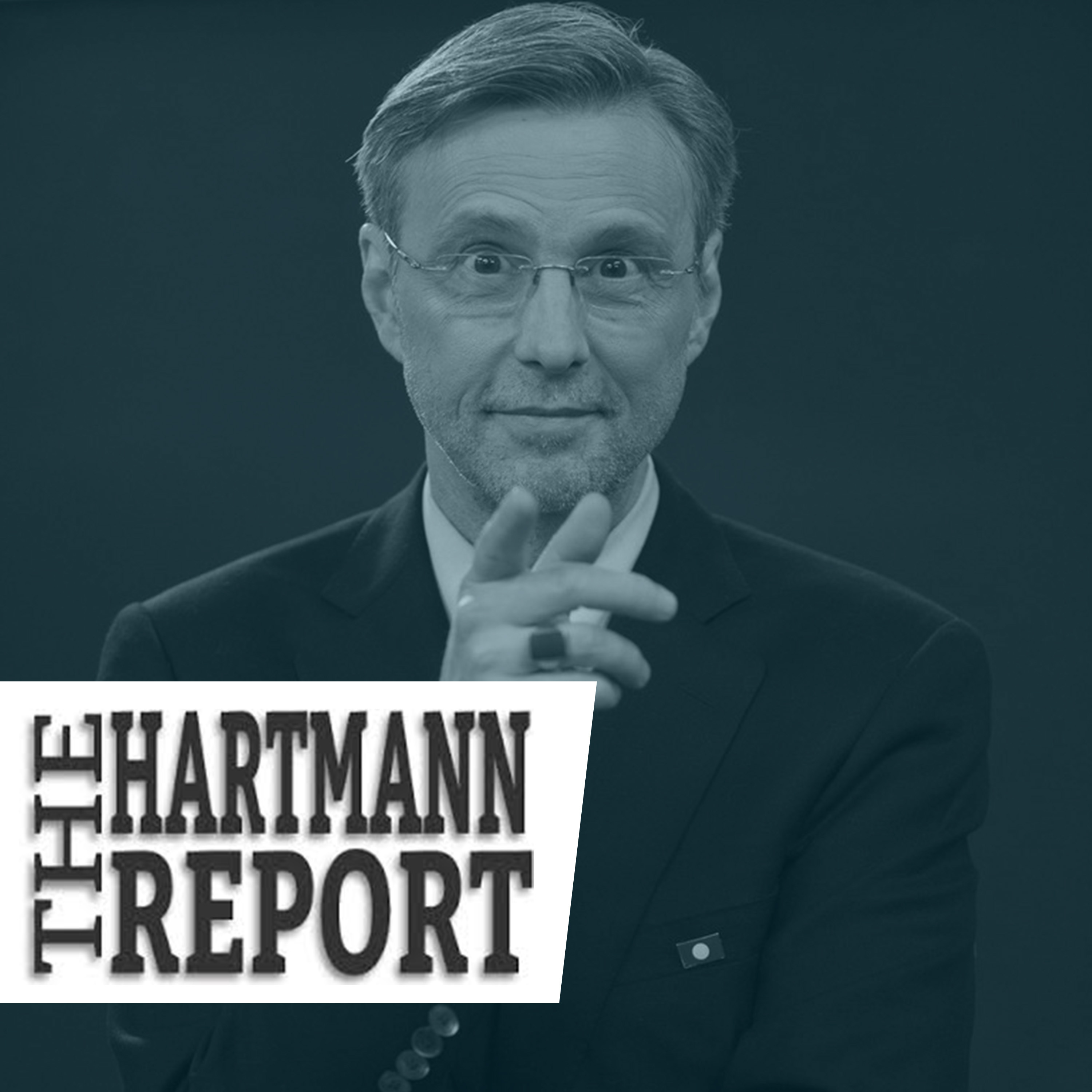
The Hartmann Report
Thom Hartmann
The Glenn Show
Glenn Loury
#RolandMartinUnfiltered
Roland S. Martin
Newt's World
Gingrich 360
Pod Save America
Crooked Media
Ralph Nader Radio Hour
Ralph Nader
Bannon`s War Room
WarRoom.org
Bannon’s War Room
dan fleuette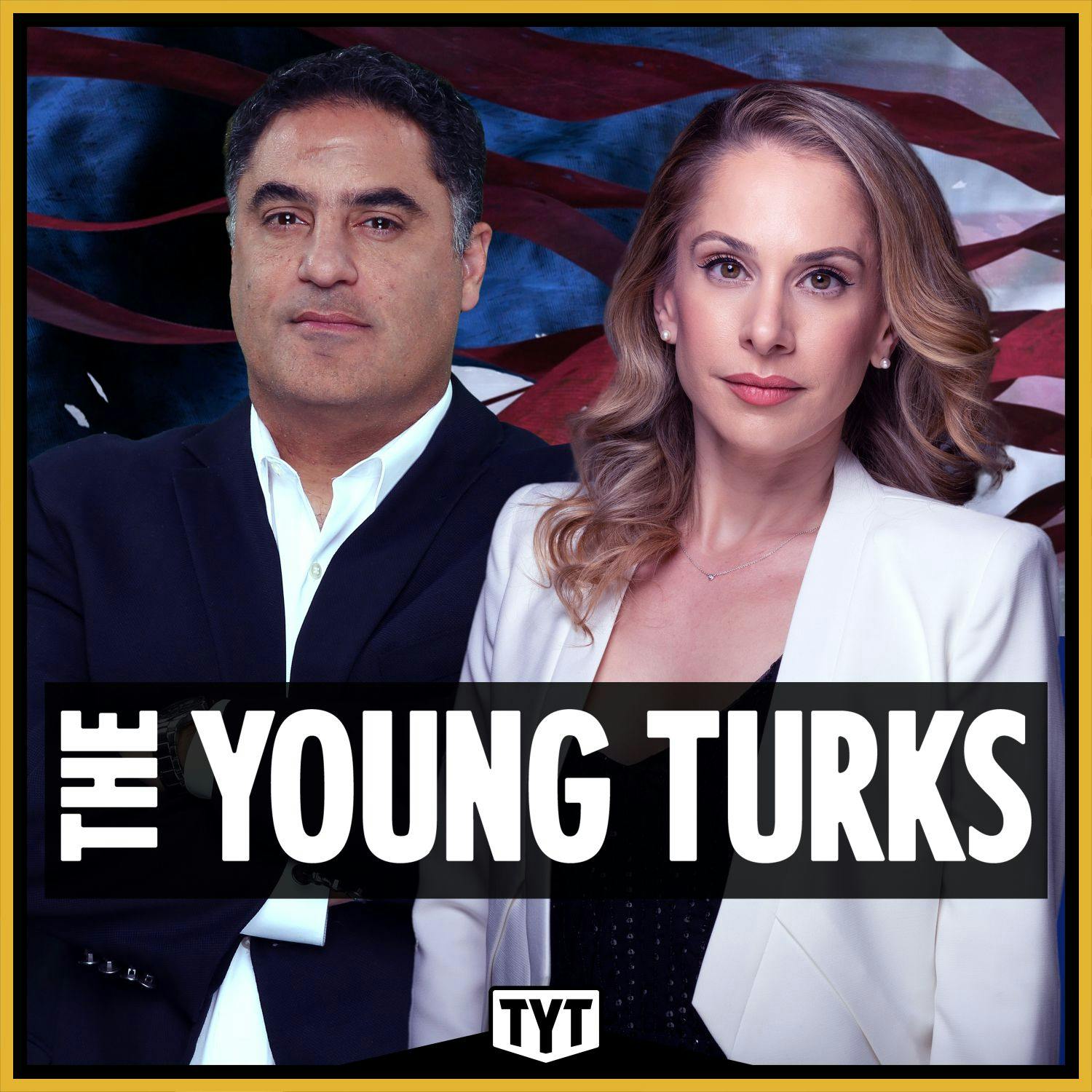
The Young Turks
TYT Network
The Beat with Ari Melber
Ari Melber, MSNBC
The Damage Report with John Iadarola
TYT Network
The Majority Report with Sam Seder
Sam Seder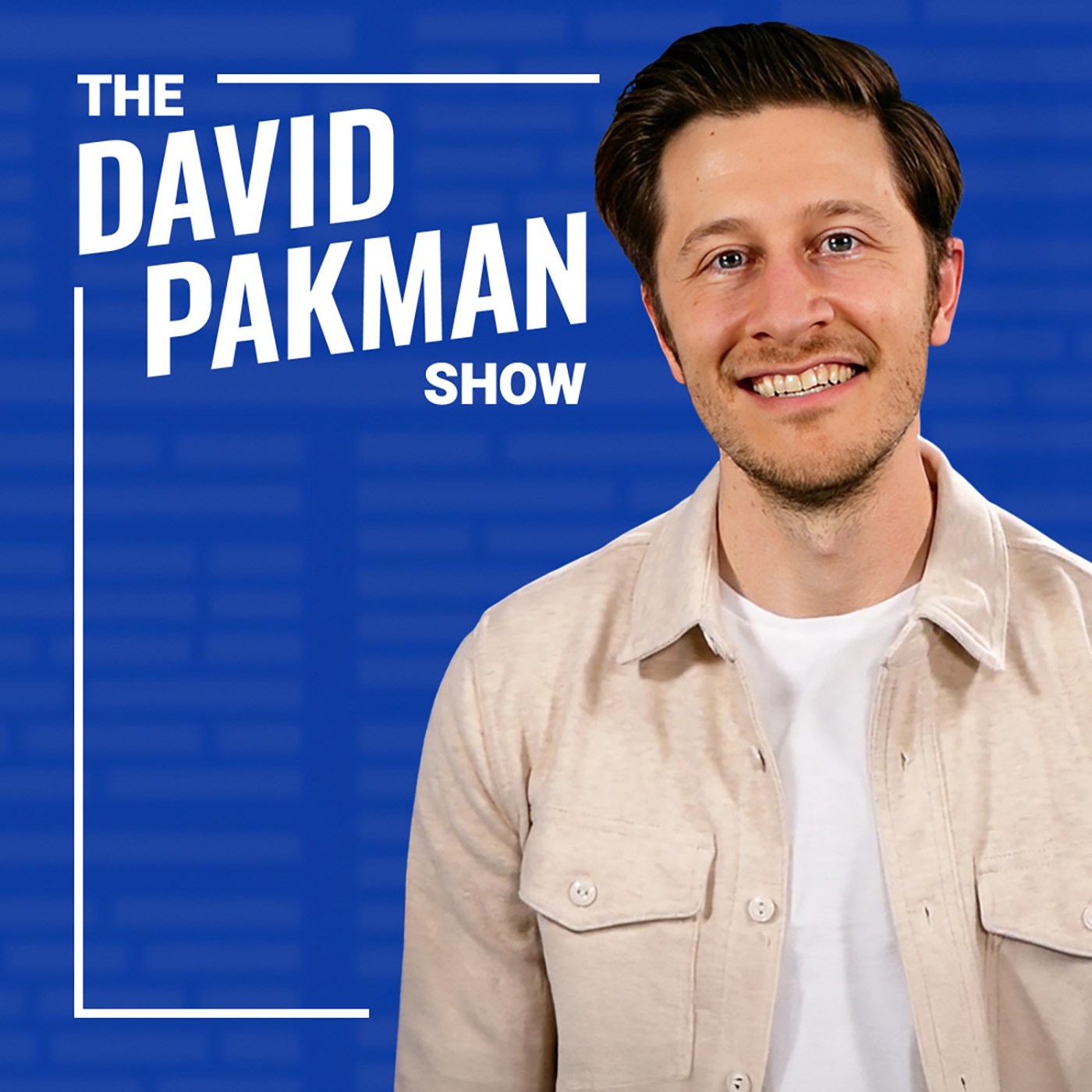
The David Pakman Show
David PakmanGet A Grip with Kendall Reusing
Kendall Reusing
Ultimately with R.C. Sproul
Ligonier Ministries
Grace to You: Radio Podcast
John MacArthur
The Briefing with Albert Mohler
R. Albert Mohler, Jr.
StarTalk Radio
Neil deGrasse Tyson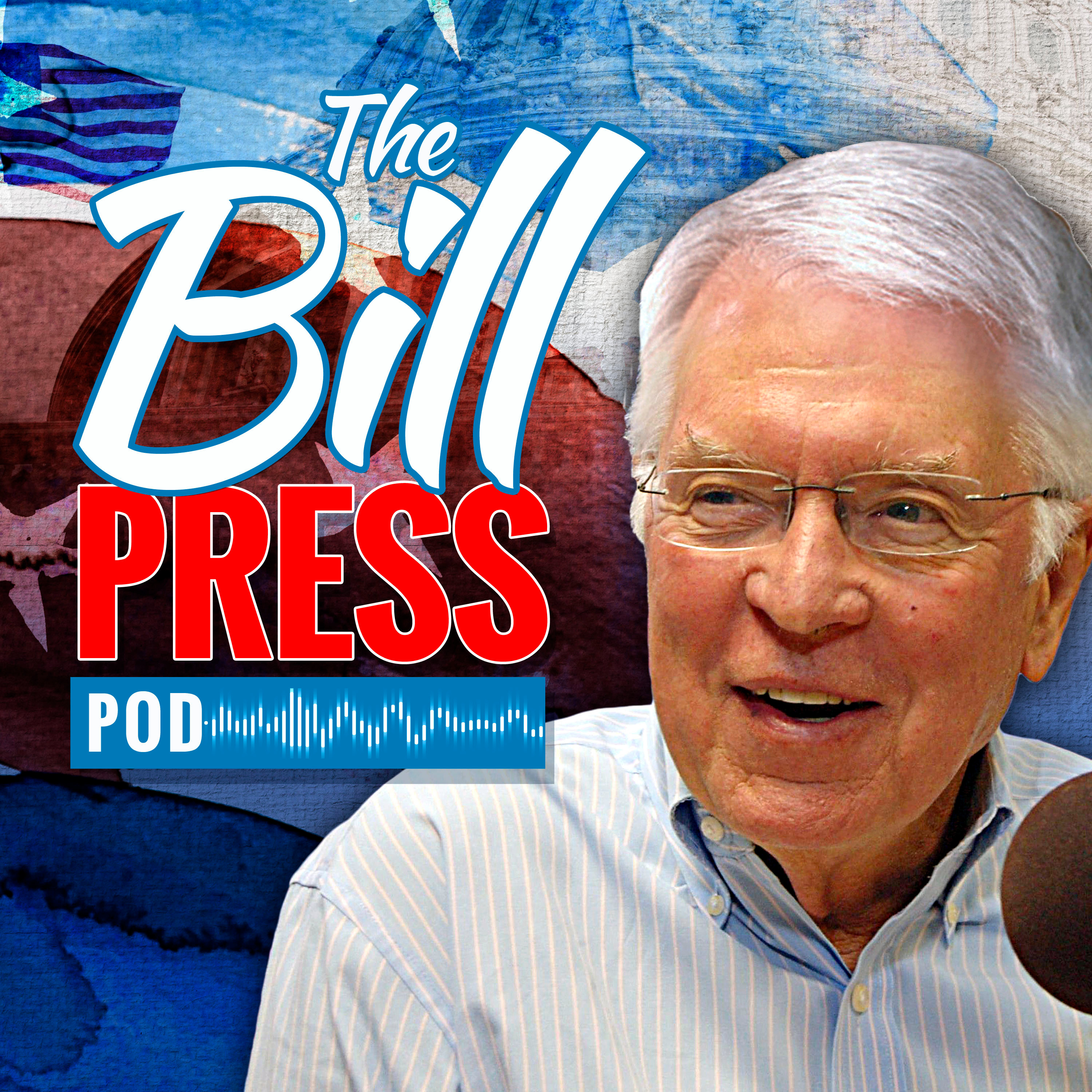
The Bill Press Pod
BP Pods
Ask Pastor John
Desiring God
The Weekly Show with Jon Stewart
Comedy Central
Ask Ligonier
Ligonier Ministries
Lost Debate
The Branch
Coffee-Time-Again
Dale Hutchinson
5 Minutes in Church History with Stephen Nichols
Ligonier Ministries
The Ezra Klein Show
New York Times Opinion
Why Is This Happening? The Chris Hayes Podcast
Chris Hayes, MSNBC
Changed By Grace
Dr. Steve Hereford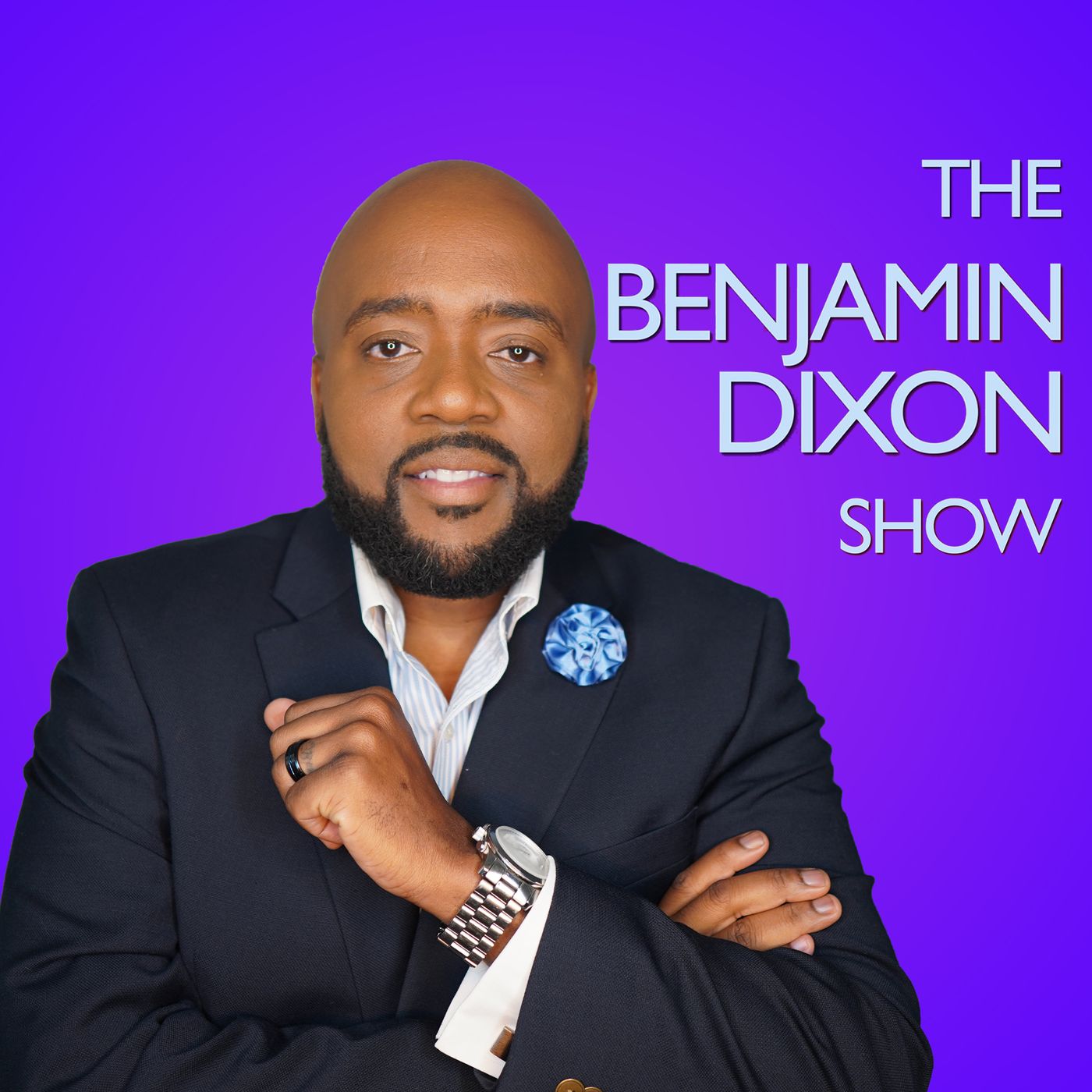
The Benjamin Dixon Show
The Benjamin Dixon Show
Thinking in Public with Albert Mohler
R. Albert Mohler, Jr.
Who Killed JFK?
iHeartPodcastsThe MacArthur Center Podcast
The Master's Seminary
Jean Jacques Machado : No Gi Required
Jay Zeballos
Trauma Bonding
Jamie Kilstein
This Day in History
The HISTORY Channel
The Ben Shapiro Show
The Daily Wire
The Sean Hannity Show
Sean Hannity
Breaking Points with Krystal and Saagar
iHeartPodcasts
The Kyle Kulinski Show
Kyle Kulinski